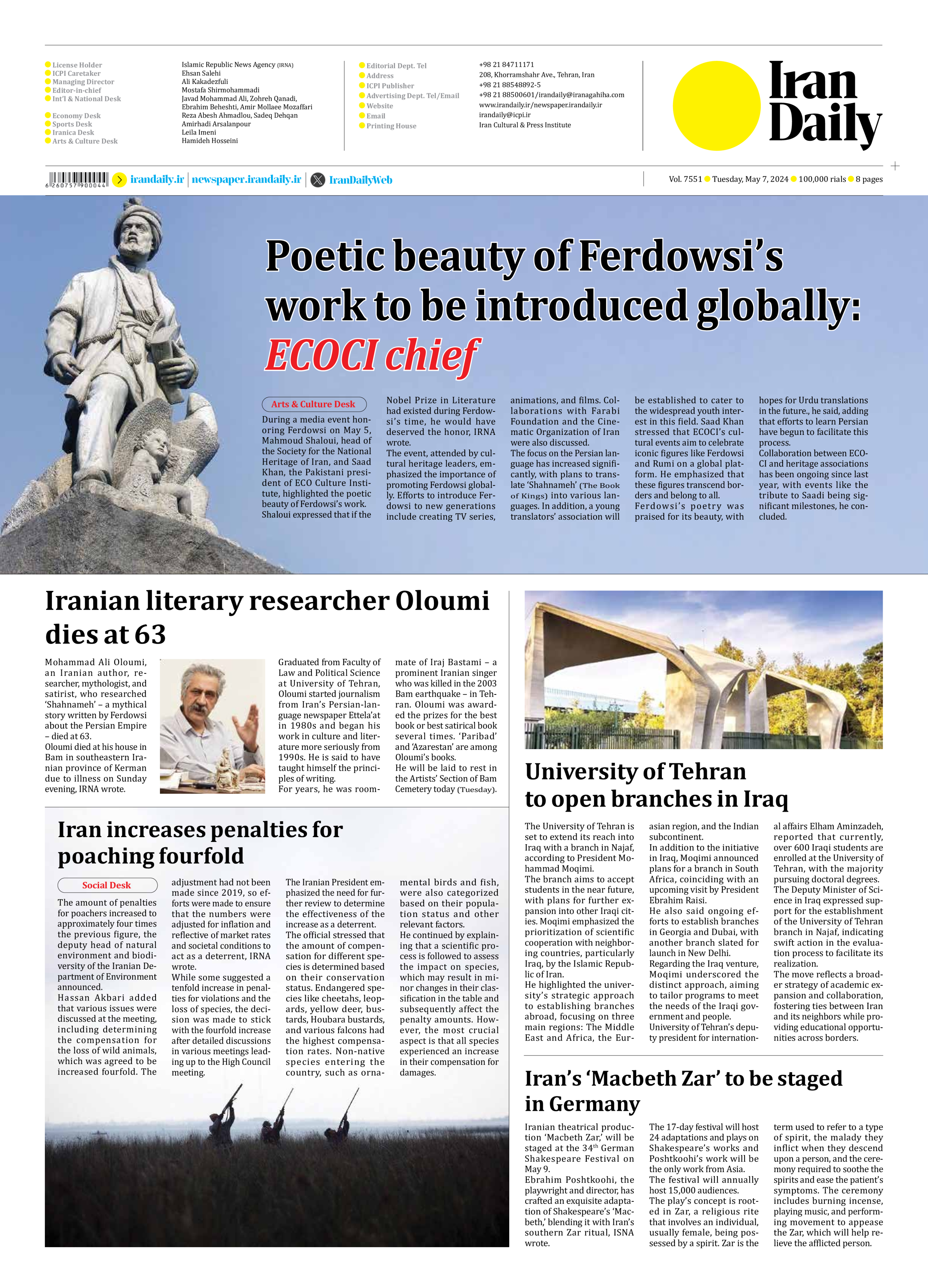
Copy in clipboard...
Iran increases penalties for poaching fourfold
Hassan Akbari added that various issues were discussed at the meeting, including determining the compensation for the loss of wild animals, which was agreed to be increased fourfold. The adjustment had not been made since 2019, so efforts were made to ensure that the numbers were adjusted for inflation and reflective of market rates and societal conditions to act as a deterrent, IRNA wrote.
While some suggested a tenfold increase in penalties for violations and the loss of species, the decision was made to stick with the fourfold increase after detailed discussions in various meetings leading up to the High Council meeting.
The Iranian President emphasized the need for further review to determine the effectiveness of the increase as a deterrent.
The official stressed that the amount of compensation for different species is determined based on their conservation status. Endangered species like cheetahs, leopards, yellow deer, bustards, Houbara bustards, and various falcons had the highest compensation rates. Non-native species entering the country, such as ornamental birds and fish, were also categorized based on their population status and other relevant factors.
He continued by explaining that a scientific process is followed to assess the impact on species, which may result in minor changes in their classification in the table and subsequently affect the penalty amounts. However, the most crucial aspect is that all species experienced an increase in their compensation for damages.







